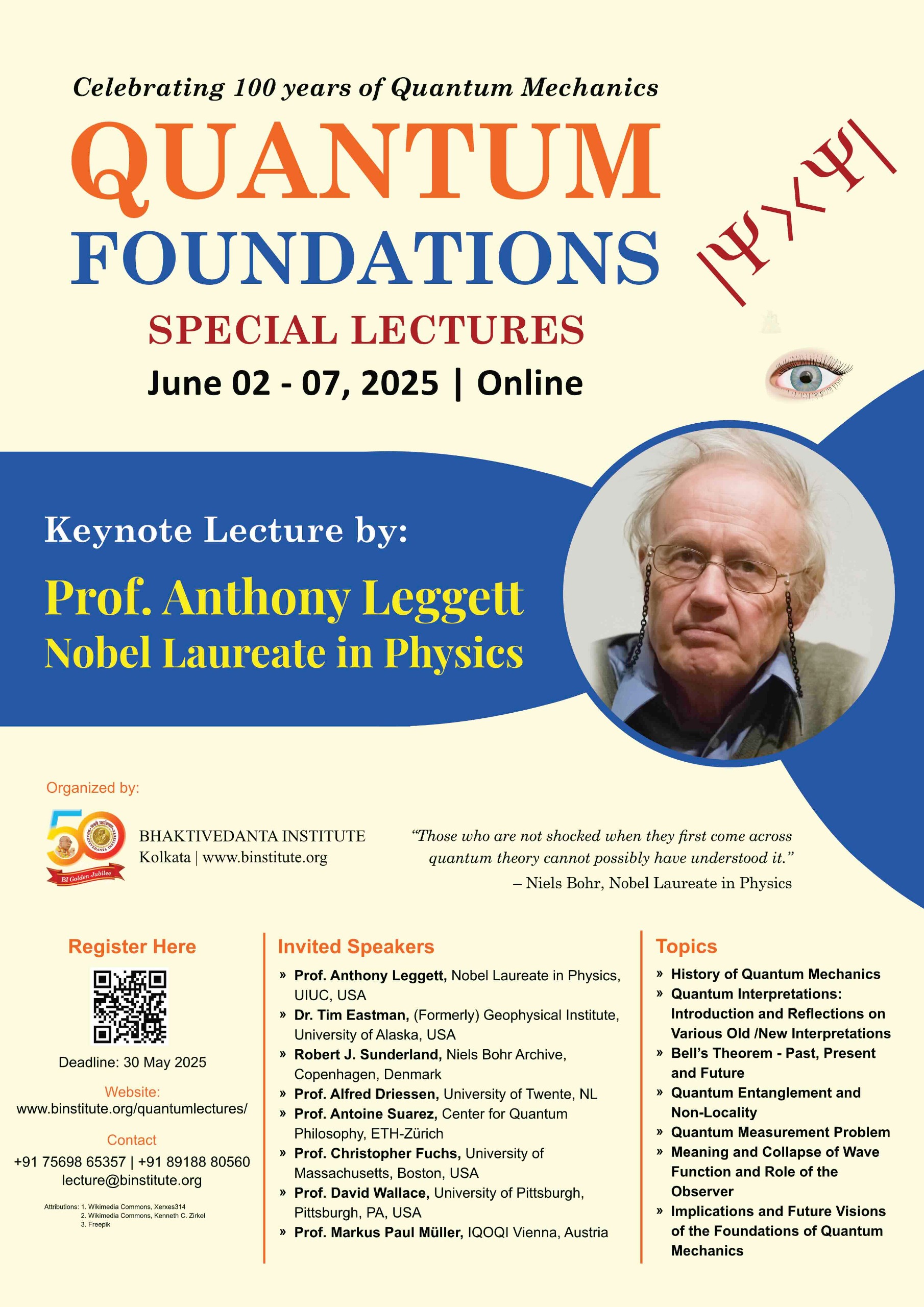About
Quantum Foundation Online Lectures
Quantum mechanics, one of the most transformative scientific breakthroughs of the 20th century, has fundamentally reshaped our understanding of the universe and powered revolutions in chemistry, biology, medicine, and digital technology.
Laid foundations with Max Planck’s revolutionary idea of energy quantization (Nobel Prize in Physics, 1918) and further expanded by Albert Einstein’s explanation of the photoelectric effect (Nobel Prize, 1921), quantum theory laid the groundwork for a new physics.
The year 1925 marked a pivotal point in the development of quantum mechanics. In this year, Werner Heisenberg introduced matrix mechanics, a revolutionary approach to understanding the quantum world. This formulation shifted the focus from classical trajectories to observable quantities like momentum and energy, marking a departure from deterministic physics and embracing the probabilistic nature of quantum systems. Heisenberg’s matrix mechanics was one of the earliest forms of quantum mechanics and set the stage for future developments.
The early formulations of quantum mechanics were refined by Erwin Schrödinger (wave mechanics, Nobel Prize, 1933), and Paul Dirac (quantum electrodynamics, Nobel Prize, 1933), each contributing to a framework that would redefine the nature of matter, energy, and measurement.
Niels Bohr (Nobel Prize, 1922) and his principle of complementarity, along with the famous Bohr-Einstein debates, exemplify the deep philosophical tensions that persist within the quantum framework. John Bell’s groundbreaking theorem and the later confirmation of quantum entanglement in experiments by Alain Aspect (Nobel Prize, 2022) revived these foundational debates in a modern context. More recently, the 2022 Nobel Prize awarded to Alain Aspect, John F. Clauser, and Anton Zeilinger recognized their pioneering work in quantum entanglement and information, which has laid the foundation for quantum computing and quantum communication.
Quantum theory’s impact extends far beyond technological innovation—it challenges our most basic assumptions about reality. From the mysteries of measurement and observer-dependent outcomes to the unexplained nature of dark matter and dark energy. Quantum Mechanics continues to provoke foundational questions, such as; Can it be reconciled with general relativity? Does it hold clues about consciousness? Why do multiple interpretations persist, and what does that say about our understanding of reality?
As we mark a century since the discovery of quantum mechanics, the Bhaktivedanta Institute is happy to organize Quantum Week as part of the Institute’s Golden Jubilee Celebrations, inviting scholars, students, and seekers to reflect on both the scientific and philosophical depths of this remarkable theory.
The program will feature distinguished scientists and scholars from leading institutions across India and abroad, engaging in interdisciplinary dialogues that span physics, chemistry, biology, mathematics, neuroscience, consciousness studies, and ancient Indian wisdom.
Young researchers will share emerging work on the foundations of quantum mechanics, fostering a space for fresh ideas and collaborative inquiry. In addition to its intellectual richness, Quantum Week offers participants the opportunity to immerse themselves in the cultural and spiritual heritage of West Bengal, further deepening the reflective and integrative spirit of the event.
As we honor a century of quantum thought and fifty years of the Bhaktivedanta Institute’s contribution to science and spirituality, Quantum Week promises to be an inspiring convergence of knowledge, curiosity, and consciousness.

